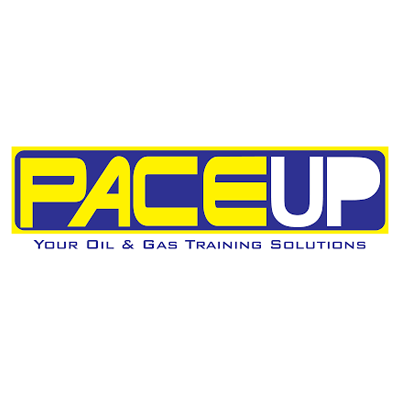Program Overview
In today’s challenging working environment it is vitally important to keep up to date with the latest developments within industry; both in terms of the most recent technology advances and knowledge that can make your job easier. However, this can be harder and harder to accomplish given tighter constraints on time and travel.
This training program organized by Pace Up in collaboration with NEL will aim to meet these issues head on by providing the most flexible event to date. You have the choice to attend all the interactive training courses, or you can choose the topic that is more relevant to your professional development. We offer five different courses over this 10 half-day event.


5 Courses in 1 Training Program
- Fundamentals of Flow Measurement
- Introduction to Measurement Uncertainty
- Custody Transfer Flow Measurement Systems
- Flow Calculations
- Hydrocarbon Allocation
1. Fundamentals of Flow Measurement (2 half-day)
Flow measurement is vital to many industrial sectors: water supply, oil extraction, gas distribution, and much of the process and pharmaceutical industry depend on flow measurement for quality control and custody transfer. To obtain the required level of accuracy at an appropriate price, it is crucial that the right meter is selected for the application and that it is appropriately used. However, the flow meter user is faced with a bewildering array of technologies and conflicting claims from manufacturers.
Objective
This course enables delegates to understand the issues surrounding flow measurement. It also provides the delegate with an unbiased view of the various technologies available and the basic knowledge required to make informed choices. Key aspects of flow measurement, all general meter types and their applications will be discussed and explained.
2. Introduction to Measurement Uncertainty (2 half-day)
Measurement is fundamental to the control of quality, efficiency and safety. This one day course is designed to impart a basic understanding of measurement uncertainty. Delegates will learn about the impact of uncertainty in industry, to identify important sources of uncertainty in measurement systems and receive practical guidance on the design of measurement techniques to minimize uncertainty.
Objective
This course will introduce delegates to the techniques required to identify what affects measurements and by how much. By ranking the effects, delegates will be able to guard against invalid conclusions and ensure that the key measurements are targeted for investment in new instrumentation.
The course is designed to impart a basic understanding of measurement uncertainty. Delegates will learn the appreciation of the impact of measurement uncertainty within the industry, to identify the important sources of uncertainty in measurement systems and receive practical guidance on the design of measurement techniques for improved uncertainty.
3. Custody Transfer Flow Measurement Systems (2 half-day)
A transaction involving physical transfer of oil and gas from one operator to another is known as Custody Transfer. Accurate metering of the fluids being transferred between the two is therefore of vital importance. This one day training course will enable metering engineers to gain a knowledge of how fluids are metered in the oil and gas sector.
Objective
- Understand the requirement for Custody Transfer Measurement.
- Basic sizing techniques.
- Select the optimum meter type.
- Appreciate the various standards and regulations applied.
4. Flow Calculations (2 half-day)
Accurate measurement of produced hydrocarbons has always been a very high priority for oil and gas operating companies. To satisfy this requirement, stringent requirements are set for the various calculations that are adopted todefine the quantity and quality of the fluids being measured. There are numerous standards which define these parameters and this half day course explains the commonly used equations and standards by detailing the source of the calculations, the parameters used, the required inputs/outputs and their effect on the uncertainty of measurement.
Objective
This course provides for the delegates an introduction into the importance of and the requirements for the calculations and standards applied on orifice gas metering systems and liquid turbine metering systems. The course covers:
- Appropriate ISO, AGA and API standards
- Their background and application
- Gas calculations including corrections
- Liquid calculations including corrections
- Sources of error
5. Introduction to Hydrocarbon Allocation (2 half-day)
In Oil and Gas production environments, it is often necessary for operating companies to share production and transportation facilities. It is therefore important that the hydrocarbons entering such facilities are equitably allocated between the companies contributing to the system. The process of dividing the produced hydrocarbons, ensuring that each operator gets their allotted share is known as hydrocarbon allocation. This one day course is designed to describe the development of an allocation system and explain the different types of allocation calculations that are commonly applied.
Objective
The course will cover:
- What is Hydrocarbon Allocation?
- Design and development of an allocation system
- Functions of an allocation system
- Proportional allocation
- Mass Allocation
- Uncertainty based allocation by difference allocation
These modules will be complemented by a series of examples and case studies to illustrate the concepts being covered.
Fundamentals of Flow Measurement (2 half-day)
Anyone who is new to flow measurement both in a technical and non-technical capacity including technicians, engineers, sales people, administrators and managers. The course is intensive but will make an effective use of delegates’ time.
Introduction to Measurement Uncertainty (2 half-day)
Research and Development Engineers, Instrumentation Engineers, Quality Managers, Technical Managers
Custody Transfer Flow Measurement Systems (2 half-day)
Anyone who is new to flow measurement both in a technical and non-technical capacity including technicians, engineers, sales people, administrators and managers. The course is intensive but will make an effective use of delegates’ time.
Info not available
Course Schedule
| Date Start | Date End | Time Start | Time End |
|---|---|---|---|
| 2021-02-15 | 2021-02-26 |

